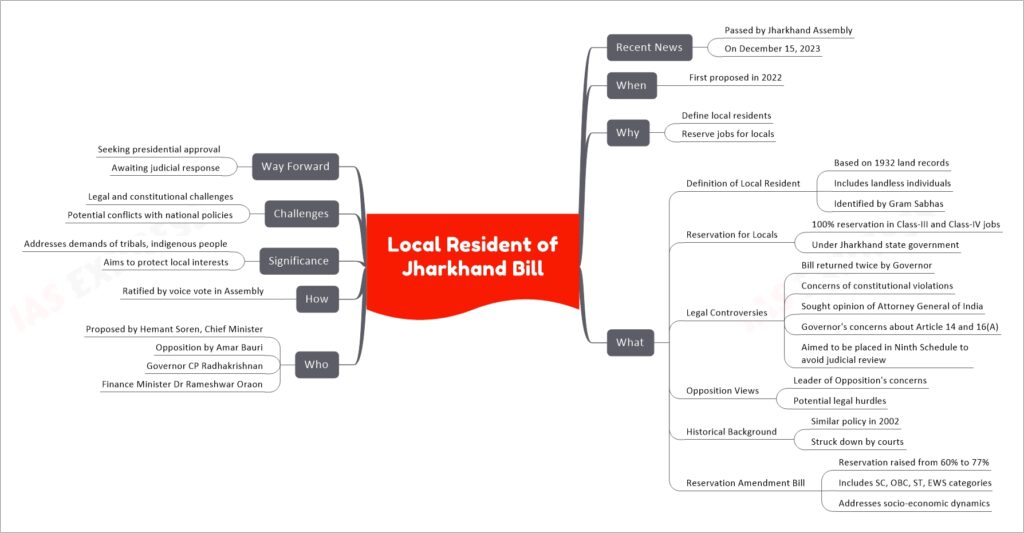Local Resident of Jharkhand Bill

The Local Resident of Jharkhand Bill, passed by the Jharkhand Assembly in December 2023, aims to define ‘local resident’ based on land records from 1932 or earlier, including provisions for landless individuals identified by Gram Sabhas. This bill paves the way for 100% reservation for locals in Class-III and Class-IV state government jobs. The bill faced opposition and was returned twice for reconsideration due to constitutional concerns raised by Governor CP Radhakrishnan, particularly regarding potential violations of Articles 14 and 16(A) of the Indian Constitution. Chief Minister Hemant Soren’s government aims to place the bill in the Ninth Schedule to avoid judicial review, despite its controversial nature and similarity to a policy introduced in 2002, which was struck down by the courts. Additionally, the Jharkhand Assembly ratified an amendment bill increasing reservations from 60% to 77%, covering various social categories. The bill now awaits presidential approval and a judicial response to the legal challenges it faces.

